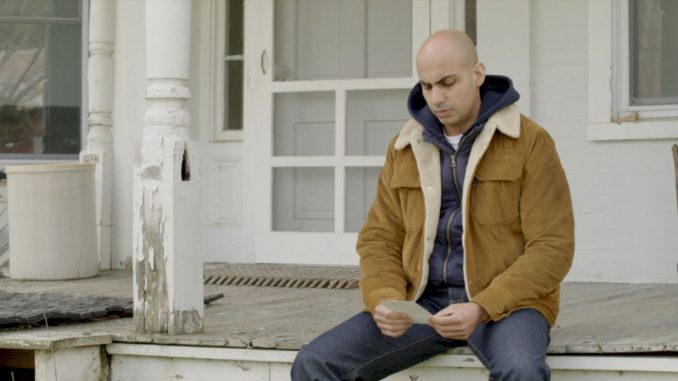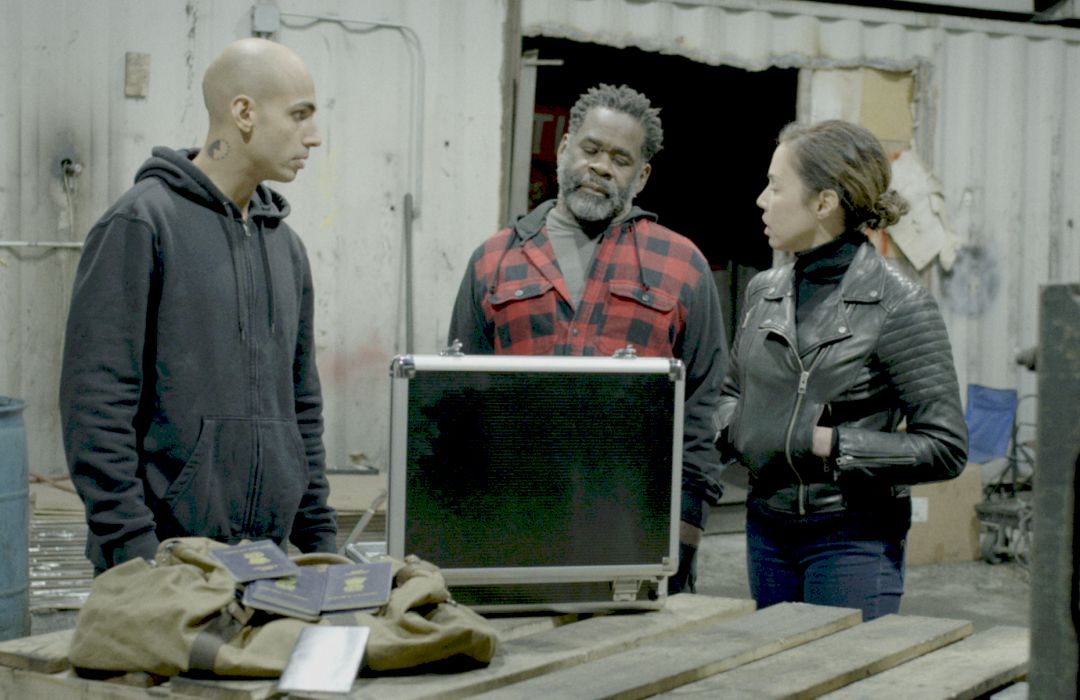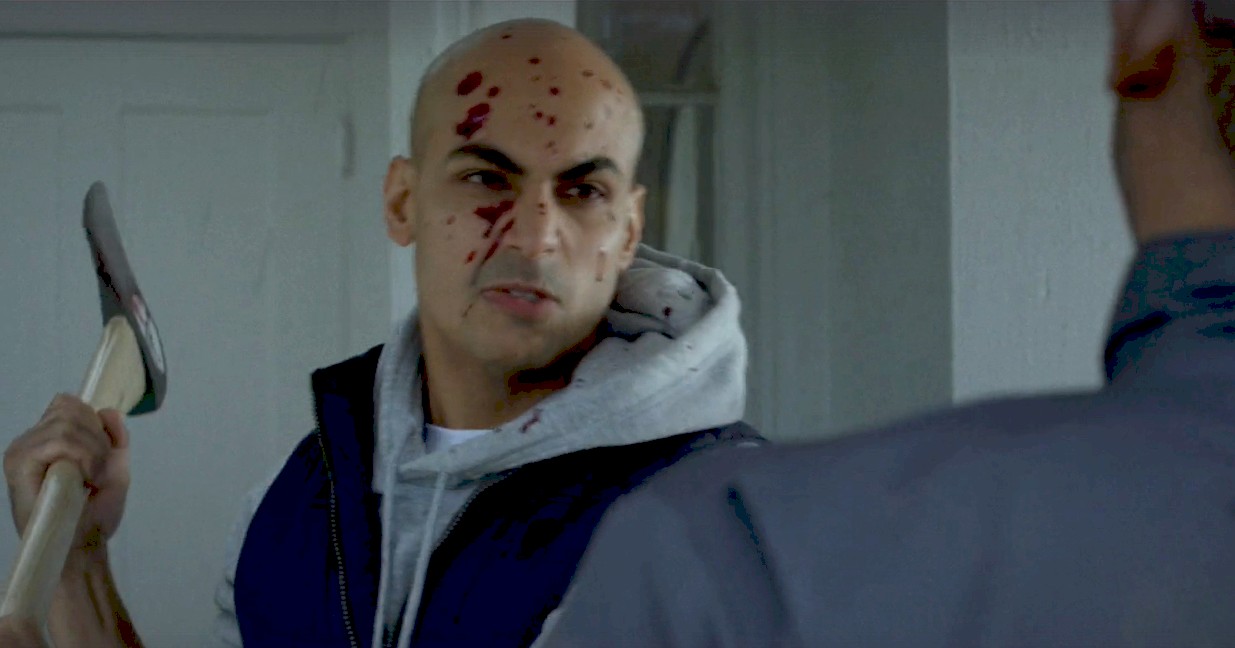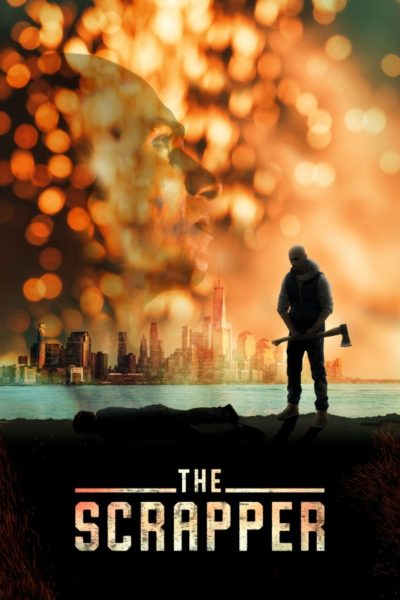
To say Bari Kang has had an interesting life, would be an understatement. His family feared for their lives in India during the Sikh Massacres, and fled the country – five-year-old Bari traveling with his aunt, using the passport of her daughter. His parents joined them later, travelling through Mexico and successfully applying for asylum as refugees. Bari subsequently grew up in Queens, New York, where his family still runs a store, and became an American citizen in 2011.
Despite obtaining an MBA, his childhood interest in films never went away, and he pursued a career in film. Frustrated by the limited opportunities for ethnic actors, he decided the only way forward was to make his own film. The result was Lucky, which Bari wrote, directed and played the lead role of an illegal immigrant who gets a job driving for a drug dealer. He followed this up with The Scrapper, which recently hit streaming services, and is – quite deliberately! – about as far from a typical Indian movie as possible.
After seeing a Reddit post about the movie, we spoke to Bari about the challenges and pleasures of low-budget cinema, coronavirus and pulling triple duty on a film.
To the curious reader, pitch The Scrapper, and why they should watch it
It’s a suspense packed crime/thriller that explores the world of Punjabi Gangsters in America and their connection to the Mexican Cartels! This is the first time an American film explores this topic. At its core, it’s a simple story about one man trying to reform and take care of his family. We can all relate to that.
Tell us a bit about your background, and how you came to make movies.
I got into acting in my late 20’s but became weary of auditioning for the same stereotypical roles relegated to ethnic people. So I decided to create instead of compete. I began writing, which led to directing and starring in my own films!
This was your second feature, after Lucky. What lessons did you learn from it?
Everything! Lucky was my film school. I didn’t know anything about film-making when I made it. I just knew I had to make a movie. I was trying to prove to myself and the industry that I could do this. The most important thing I learned is, you don’t need permission to make films. Anybody can do it.
You’ve said The Scrapper was loosely based on your own experiences growing up. Can you tell us more about that?
Yeah, definitely. My family came to America illegally as refugees and I grew up in Queens surrounded by illegals. I was exposed to a lot of shady characters and situations at a young age. Those experiences stuck with me and inform my work.
Parts of it reminded me of some of the Hong Kong movies people like John Woo made in the eighties and nineties. Were they an influence?
For sure! I’m a big fan of old school gritty movies from all around the world. They have an amazing visceral quality to them that feels like a punch to the gut. I grew up watching Melville, Scorcese, Tarantino and De Palma. I’ve learned mostly by watching those movies and I was heavily influenced by them.

You wrote, directed and starred in it. Did you ever think about handing any of those jobs over to anyone else? And which aspect do you enjoy most – or least!
I wrote/directed and starred in Lucky out of necessity. I would have loved to have an experienced director but couldn’t afford one. With The Scrapper, I knew I was gonna do it all. It’s my baby and I had a clear vision of what I wanted from the beginning.
I love it all but if I had to choose one it would be writing! You don’t need anyone else to write, just time. It takes a village to make a movie. Writing has elevated my craft with regards to acting and directing.
What particular challenges did you face during filming? I’ve heard New York is an “interesting” place to shoot!
Budget. It was a super low budget film and I wanted to make a movie that looked like a million dollars! Everything was shot on location, there were no sets because we couldn’t afford them. NY is a great place to shoot films like this because it adds authenticity. Let’s just say we broke a lot of rules.
Did the coronavirus pandemic affect production/post-production?
Yes. We still had quite a bit to shoot when the shut-down happened. I had to rewrite a lot of scenes to accommodate a skeleton crew of 3 to get it done. The entire post production was done virtually, which was quite a challenge because I like to “sit” with the editor. Thank god for ZOOM.
It’s a very different portrayal of the Punjabi community in New York. How have they reacted to your movie?
The one’s that see it love it. It’s real, you know. But most Punjabis are into Bollywood films and this is far from that. It’s more geared towards genre lovers who want something new.
Almost the last line in the movie is, “Close to the world, but not of the world”. How do you interpret that?
For me it’s about belonging and not being able to find a place for yourself. Sometimes our history and circumstances force us into a certain life, one that we may not want to live. So you end up feeling like an outsider.
What’s next for you?
I just finished a new script so the gears are in motion again! It’s a supernatural revenge thriller rife with racial tension. I’m very excited about this one. Looking forward to bringing it to life.
[The Scrapper is now available on Tubi for free with commercials, and on most other streaming services. Thanks to Bari for his time and answering our questions: we definitely look forward to seeing how his career progresses. Below is our review of The Scrapper.]

The Scrapper (2021)
Rating: B
Dir: Bari Kang
Star: Bari Kang, Ava Paloma, Samrat Chakrabarti, Allison Thomas Lee
On the one hand, there is probably not much in the basic story here, which you haven’t seen a hundred times before. A guy gets out of prison, and tries to go straight, for the sake of his family? Surely not. He ends up getting pulled back into the criminal world for one last job? You don’t say! Which, naturally, ends up going wrong and imperilling everything he holds dear. Yeah, the ingredients here are not exactly novel. Yet, the setting in which they unfold is a new and interesting one, while the execution is crisp enough to keep this engaging, despite the familiarity of the story elements.
 It takes place in Queens, New York, where the criminal elements in two immigrant communities, the Punjabi and Mexican, have forged an uneasy alliance, with the former group laundering money for the latter. Jake (Kang) is the man recently released from jail, and seeking to start afresh in upstate New York, with his wife, Kitt (Paloma), and mentally challenged little brother, JD. However, his sister, Linda (Lee) who runs a scrapyard, is $100,000 in debt to the cartel – in part because of money spent to help Jake in prison. He agrees to rob the restaurant used as a front by corrupt cop Raj (Chakrabarti), and steal the Mexican money waiting to be laundered. It appears to go well: Jake and his family do get out of town. Then the cartel realize Linda paid off her debt with their own money…
It takes place in Queens, New York, where the criminal elements in two immigrant communities, the Punjabi and Mexican, have forged an uneasy alliance, with the former group laundering money for the latter. Jake (Kang) is the man recently released from jail, and seeking to start afresh in upstate New York, with his wife, Kitt (Paloma), and mentally challenged little brother, JD. However, his sister, Linda (Lee) who runs a scrapyard, is $100,000 in debt to the cartel – in part because of money spent to help Jake in prison. He agrees to rob the restaurant used as a front by corrupt cop Raj (Chakrabarti), and steal the Mexican money waiting to be laundered. It appears to go well: Jake and his family do get out of town. Then the cartel realize Linda paid off her debt with their own money…
I’d never thought about this particular combination before, but the way the film explains the overlap between the two communities makes a good deal of sense. Yet the sharp separation between them – this truly is a marriage of convenience – creates an underlying tension, with an inherent lack of trust, that helps power the film, especially at the end. It feels like Kang took inspiration from the “heroic bloodshed” films that came out of Hong Kong in the 80’s and 90’s, in which an anti-hero draws a moral line, then explodes in violence when pushed past that point. I was also reminded of Heart of the Dragon, where Jackie Chan had to take care of his autistic younger brother, played by Sammo Hung.
I’ve written before about the perils of low-budget film-makers trying to wear too many hats, yet Kang does a good job of avoiding these pitfalls. His writing, directing and acting all appear consistent: there’s no sense any of those jobs were done out of necessity, or that his talents lie in any particular one of them. His supporting cast are well-chosen too, with their performances all pulling in the same direction, which is not always the case in low-budget cinema. There’s a grimly realistic approach to the violence, and people here tend not to die easily; the scene where Jake wields an ax enthusiastically, is probably the most memorable. Those ingredients may be familiar, yet the finished dish is tastier than I expected.
